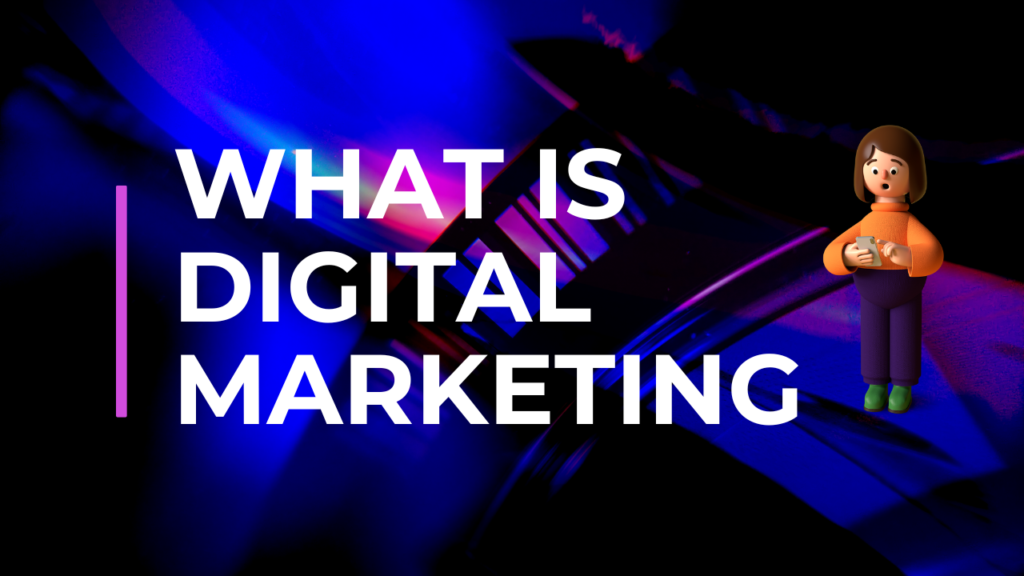
In today’s fast-paced digital landscape, where online presence reigns supreme, businesses must harness the power of digital marketing to thrive. But what exactly is digital marketing, and how can it benefit your business? In this comprehensive guide, we’ll explore the various types of digital marketing, provide real-world examples, and delve into the myriad benefits it offers.
What is Digital Marketing?
Digital marketing encompasses all marketing efforts that utilize electronic devices or the internet. It’s a broad term that includes a plethora of strategies aimed at reaching and engaging with target audiences online. From social media and email campaigns to search engine optimization (SEO) and content marketing, digital marketing leverages digital channels to connect with potential customers and drive business growth.
Types of Digital Marketing
- Search Engine Optimization (SEO): SEO involves optimizing your website to rank higher in search engine results pages (SERPs) for relevant keywords. By improving your site’s visibility, you can attract more organic traffic and increase your chances of converting visitors into customers.Example: A local bakery implements SEO techniques to appear at the top of Google’s search results when users in their area search for “freshly baked goods.”
- Content Marketing: Content marketing revolves around creating and distributing valuable, relevant content to attract and engage a specific audience. This content can take various forms, including blog posts, videos, infographics, and eBooks.Example: A software company publishes informative blog posts and tutorial videos to educate their audience about industry trends and best practices, establishing themselves as thought leaders in their field.
- Social Media Marketing: Social media marketing involves leveraging social platforms like Facebook, Instagram, Twitter, and LinkedIn to connect with your audience, build brand awareness, and drive website traffic or sales.Example: A fashion brand utilizes Instagram to showcase its latest collections, engage with followers through interactive posts, and collaborate with influencers to reach a wider audience.
- Email Marketing: Email marketing entails sending targeted messages to your subscribers to nurture leads, promote products or services, and drive conversions. It’s an effective way to maintain communication with your audience and build customer loyalty.Example: An e-commerce retailer sends personalized email newsletters to its subscribers, featuring new arrivals, exclusive discounts, and curated product recommendations based on their purchase history.
- Pay-Per-Click (PPC) Advertising: PPC advertising involves placing ads on search engines or social media platforms and paying a fee each time someone clicks on your ad. It’s a highly targeted and measurable form of advertising that can deliver instant results.Example: A travel agency runs PPC ads on Google targeting users searching for vacation packages, bidding on keywords like “affordable beach getaways” to attract potential customers.
Benefits of Digital Marketing
- Increased Reach and Visibility: Digital marketing allows you to reach a global audience, regardless of geographical constraints. With the right strategies in place, you can expand your brand’s visibility and attract potential customers from across the globe.
- Targeted Advertising: Unlike traditional marketing methods, digital marketing enables precise targeting based on demographics, interests, behaviors, and more. This targeted approach ensures that your marketing efforts are directed towards the most relevant audience, maximizing your ROI.
- Measurable Results: Digital marketing offers comprehensive analytics tools that allow you to track the performance of your campaigns in real-time. From website traffic and conversion rates to engagement metrics and customer demographics, you can gain valuable insights into what’s working and what’s not, enabling you to optimize your strategies accordingly.
- Cost-Effectiveness: Compared to traditional marketing channels like print or television advertising, digital marketing is often more cost-effective. With options like social media ads, email marketing, and content creation, you can reach your target audience at a fraction of the cost, making it suitable for businesses of all sizes.
- Improved Customer Engagement: Digital marketing fosters two-way communication between brands and customers, allowing for meaningful interactions and feedback. By engaging with your audience through social media, email, and other channels, you can build stronger relationships and cultivate customer loyalty over time.
In conclusion, digital marketing is a powerful tool that can propel your business to new heights in the digital age. By embracing various digital marketing strategies, businesses can enhance their online presence, connect with their target audience, and achieve their marketing objectives more effectively than ever before. Whether you’re a small startup or a multinational corporation, integrating digital marketing into your overall marketing strategy is essential for long-term success in today’s competitive landscape.

















